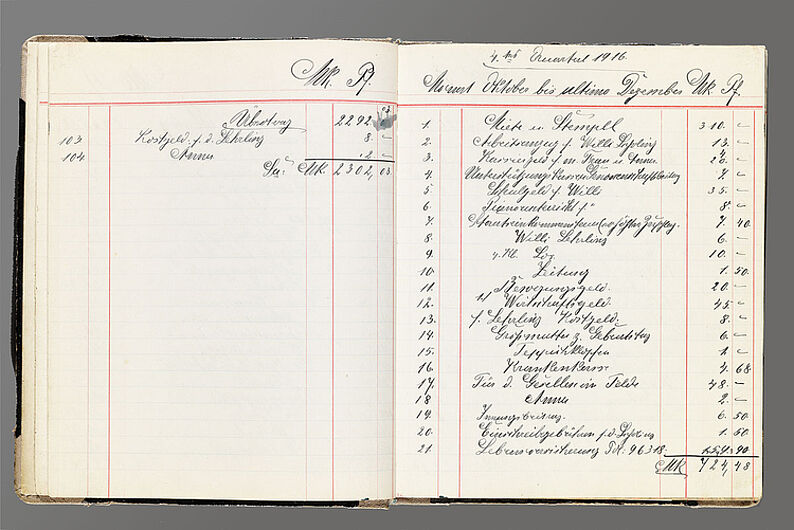Weimar Republic
1918–1933

The German empire emerged in 1918 from the revolutionary shockwaves of the First World War to form a parliamentary democracy.
The occupation of the Ruhr Valley, inflation and the grievous economic crisis threatened the cohesion of the young Weimar Republic. In the tattered landscape of the political parties, contrary visions of Germany’s political form stood opposed to one another. Left-wing and right-wing extremists fought the democratic order. During a brief phase of relative stability, the economy recovered and avant-garde forms of art and culture came into bloom.
The series of alternating government coalitions failed to find effective means to fight social misery and unemployment. During the world depression, the situation worsened. The political radicalization of the population made possible the rise of the NSDAP to a party of the masses with the strongest fraction in parliament.

Bowl "Property of the City of Berlin", 1929-1932.
(Inv.Nr. MK 74/403)

Otto Griebel, The International, 1929-1930.
(Inv.Nr. Kg 62/61)

AEG Advertising Panel, 1938/1940.
(Inv.Nr. Do2 88/1435.2)

Kurt Eisner, At Dawn, 1919.
(Inv.Nr. 1987/204)

Alfred Fritzsche, In the Basement Apartment, 1932.
(Inv.Nr. Kg 77/19)

Banknotes of the Hyperinflation Era, 1923.

Hand Prosthesis (left), 1920/1930.
(Inv.Nr. 1989/1799)

Target with a Caricature on the Ruhr Area’s Occupation, 1923-1925.
(Inv.Nr. 1990/1463)

Gottfried Kirchbach, Poster of the Social Democratic Party of Germany (SPD) for the Election of the Constituent National Assembly, with the Appeal to Women to Vote for the SPD, Which Has fought for Equal Rights for Women, 1919.
(Inv.Nr. P 61/1477)

Anti-Bolshevik League Poster, Bremen, 1918-1919.
(Inv.Nr. P 64/375)

Lucian Bernhard, Propaganda Poster on Joining the Freikorps, 1919.
(Inv.Nr. 1987/402)

Werner Graul, Poster for the Film "Metropolis" by Fritz Lang, 1926.
(Inv.Nr. P 62/20)

Dress, ca. 1925.
(Inv.Nr. KT 94/402)

Fritz Rosen, Travel Advertising for the City of Berlin, 1926.
(Inv.Nr. P 62/929)

Neckarsulmer Fahrzeugwerke AG, Motorcycle "NSU 251 R", 1927.
(Inv.Nr. Pro 65/243)

Tapestry, ca. 1920-1930.
(Inv.Nr. 1991/3242)

Louis Oppenheim, Propaganda Poster against the Treaty of Versailles, 1919.
(Inv.Nr. 1988/1942)

Hans Herkendell, Poster of the Christian People's Party (Centre) for the Election of the Constituent National Assembly in 1919, 1918-1919.
(Inv.Nr. P 61/1576)

Manfred Marcus, Anti-fascist poster of the SPD, 1932.
(Inv.Nr. P 74/3390)

Workers and Soldiers Council, Member ID Card of the Workers and Soldiers Council in Cologne, November 10, 1918, 1918.
(Inv.Nr. Do 58/497.1)

Household Book of a Berlin Family, 1916-1930.
(Inv.Nr. Do2 99/1804)